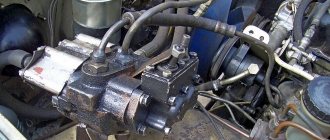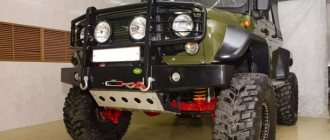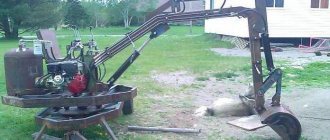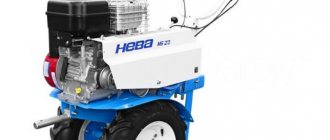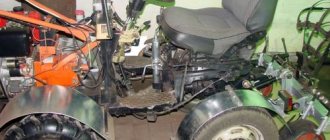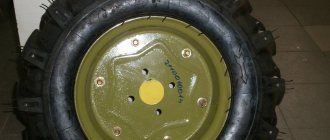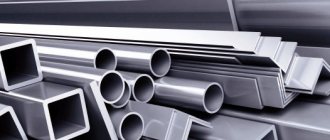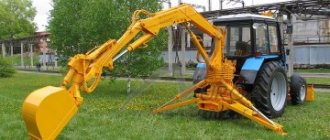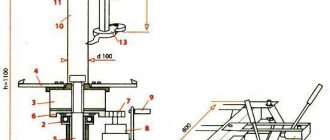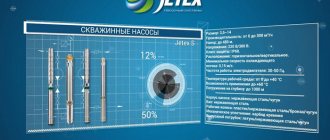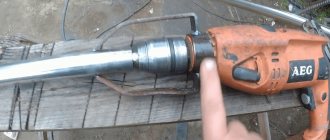Hydraulic design of a mini tractor
Homemade hydraulics are a good way to expand the functionality of a mini tractor and save a significant amount.
The assembly and installation of such a structure cannot be called something very complicated. If you have the necessary parts and tools, every farmer who wants to can make this mechanism. The main element of any hydraulic system is the pump, which is responsible for circulating fluid through the hoses. Oil flows to the pump from the reservoir. The pumping mechanism itself operates from the energy generated by the diesel engine of the mini tractor. Under the action of the pump, the oil flows through flexible tubes to the distributor. To make hydraulics for an agricultural machine, you can use an NSh-10 pump.
Making a hydraulic distributor with your own hands is quite difficult, so the best solution would be to dismantle a ready-made unit from any old tractor. A distributor of the P-80 brand, which is equipped with MTZ tractors, will be suitable for installation on a homemade machine.
Through the distributor, the oil enters the cylinder, the main function of which is to raise and lower attachments. Ready-made homemade hydraulics should be installed on the frame of a homemade machine, closer to its drive axle.
The system can also be supplemented with motors that must be connected to the wheels. Thus, hydraulics will not only lift the attachments, but also participate in braking the mini tractor.
When such hydraulics operate, oil will flow into the cylinders. Due to the drop in its level, the wheels of the minitractor will slow down. When the lever is moved to neutral, the drive wheels will be completely locked.
How to install
When all the components have been purchased, all that remains is to assemble the minitractor, in the process connecting all the elements. To do this, the engine must be connected to a purchased hydraulic pump. Further from it, the tubes are connected to the distributor, after which directly to equipment in the form of pistons, motors, as well as a hydraulic tank connected to the pump. In this case, it is necessary to install filters between the tank and the pump, which are necessary to clean the oil.
Be sure to read: Rotary cutter for a mini tractor
Upon completion of installation, all systems must be checked. If problems are identified in operation, all hoses are examined for integrity, as well as tightness of connections. When everything is good, the unit is tested during a test drive. At this time, correction is made to the functioning of the steering hydraulics, as well as movement, if there are deviations. The floating steering system should be eliminated.
Assembling hydraulics with your own hands - what are the advantages of making them?
Among modern farmers, homemade mini tractors are far from uncommon. The agricultural machine is capable of performing many jobs: plowing the land, mowing and collecting grass, as well as towing heavy large luggage using a mini tractor trailer. The list of these procedures can be significantly expanded, but this requires hydraulics for a homemade mini tractor.
Assembling this mechanism manually provides a number of advantages:
- the farmer can always add additional devices. Having independently developed a diagram of the hydraulic system, the owner of a homemade machine receives unlimited possibilities for equipping the mechanism with various additional devices: pistons, sensors, hydraulic pumps;
- improved control of a mini tractor - during the process of assembling and installing hydraulics, the farmer will be able to adjust all its elements “to suit himself.” This will make control of the mini tractor more precise, and the work itself much more convenient and enjoyable.
The only significant disadvantage will be the need to spend your time on assembly. However, these losses are more than compensated for during the further operation of the improved mini tractor.
How to make hydraulics for a mini tractor with your own hands?
To make a specific device, you will need a detailed diagram. The list of elements necessary for assembling the structure depends on it.
To avoid mistakes, you should familiarize yourself with the plan for the upcoming work. Hydraulics for a mini tractor are assembled in several stages.
Their list includes:
- preparation and study of drawings;
- purchasing the parts necessary for assembly;
- installation and connection of the hydraulic system;
- adjustment of elements;
- testing the interaction of the mechanism with the transmission.
To make a homemade system you will need the following parts:
- hydraulic tank and oil;
- hydraulic pump;
- hydraulic motors and pistons;
- engine;
- hydraulic distributor;
- connecting tubes.
In the process of selecting a circuit for assembly, you will need to take into account certain rules.
Their list includes:
- The hydraulic oil pump must be installed under the reservoir. In this case, oil will flow from the tank to the pump under the influence of gravity. This will prevent any problems from occurring when starting the hydraulics;
- In order for the future design to work for a long time and without failures, it is necessary to calculate the exact power of all machine mechanisms. Taking into account the data obtained, it is necessary to select a hydraulic pump. If its maximum power is not enough, you will need to install an additional pump. It will turn on separately if the performance of the main device for swapping is insufficient;
- To extend the service life of hydraulics, it must be equipped with filters to clean the circulating oil, as well as pressure gauges to control pressure.
To maintain stable operation of the system, oil must continuously circulate through its hoses. A hydraulic pump is responsible for this, which moves the liquid through the hydraulic design. The pump receives the energy required for operation from the minitractor engine. To do this, the motor must be connected to a hydraulic distributor.
The direction of oil movement is regulated by a special lever, which can be in two positions. In one of them, oil flows into a reservoir, and in the other, it is directed from the reservoir to pistons or a hydraulic motor. The oil inside the system has a high density, due to which it is capable of performing quite heavy traction actions.
The hydraulic system for a homemade mini tractor can receive energy from any engine: gasoline, diesel or electric. In this case, the main thing is that the motor can spin the shaft to the required number of revolutions. Only in this way will it ensure the operation of the hydraulic pump.
Most often, farmers use 4-cylinder diesel engines equipped with liquid cooling systems. If a mini tractor with hydraulics is used to perform simple tasks, then it can be equipped with a less powerful diesel or electric motor.
Hydraulics are also necessary for smooth steering of a mini tractor. In this case, you will need to prepare a separate drawing. He will tell you the correct installation and fit of parts into the overall design.
It should be remembered that when using hydraulics, the speed of movement of the mini tractor will be significantly lower. This is due to the fact that during this operating time its engine will transfer part of its energy to the hydraulic motor. The other part will be transmitted directly to the drive axle of the unit.
How a homemade hydraulic system works
Let's look at how hydraulics work on a mini tractor. Manufacturers of diesel mini tractors answer the question of what kind of oil to pour into the hydraulics very simply: the simplest oil is M-8DM or M-8 V. However, in winter it needs to be changed to a more viscous substance.
Many people are interested in the problem of excess pressure on the structure. Therefore, in order to regulate it, some craftsmen install a distributor that operates on two pistons - it distributes the pressure in the required way. A self-made unit, like hydraulics, requires the installation of some ready-made parts, including a distributor. It can be removed from MTZ.
Once the system is connected, it is easy to start. With the unit running, the equipment will need to be run in to check that everything is working correctly and without failures. On a machine with a homemade hydraulic system, you need to check the oil pressure in the engine and the serviceability of all components, and then check the tractor in operation.
Have you made hydraulics for a mini-tractor yourself?
Hydraulic distributor for minivan
Questions can only be asked after registration. Please login or register.
I want to install a 3-section hydraulic distributor on my Xingtai 180. I got it from the Internet. that you can put P80 3/1-222 or -333. The only thing that confuses me is the size of this device. The minik is already small, but here you need to attach a piece of iron weighing 16 kg. Maybe there is something smaller? Or am I stressing in vain, everything will be fine? And buying it in Ukraine is not a problem. Although I would like something more elegant.
smaller only two-section. And I saw it in the store in Chinese - it seemed normal. They haven’t come up with anything better yet, and if they do, it will cost a lot. I just don’t recommend it with hydraulic locks (letter G in the marking).
Pavel Vadimovich Vorobyov
I just don’t recommend it with hydraulic locks (letter G in the marking).
Judging by the description, hydraulic locks are better. The losses are lower, the ascent speed is higher.
the ascent speed is higher
Well, it doesn’t depend on the distributor, but on the pump.
Judging by the description, hydraulic locks are better. Less losses
Oh well. When the locks close, and they will close after three years of good use, then you will understand that due to wear on the spool caused by the lock ball, the spool can no longer hold without the help of the lock, and spare parts for the lock cannot be found. And without locks, Soviet distribution units went on a collective farm for 10 years, but in peasant farms they are, IMHO, eternal.
A man stood like this and praised him.
I do not know such. Price.
Pavel Vadimovich Vorobyov
Oh well. When the locks close, and they will close after three years of good use, then you will understand that due to wear on the spool caused by the lock ball, the spool can no longer hold without the help of the lock, and spare parts for the lock cannot be found..
Dear Pavel Vladimirovich, do not you confuse the fixation of the spool (distributor version -222) with a hydraulic lock. At the same time, another question arises: is it better to take a hydraulic valve with locking (-222) or without locking the spool (-111). On the one hand, the fixation is nicer and more convenient - you turn it on, but it turns off by itself. On the other hand, hold the handle for a short time. Maybe it will last longer without fixation?
No. I think you should study for yourself how it works in the version with locks.
Manufacturing stages
Having chosen MTZ, T-40 or T-25 as equipment, you can begin designing.
- Stage 1. Find drawings (or do them yourself), in which you indicate the appropriate proportions of metal parts and dimensions.
- Stage 2. To make a homemade loader for a tractor, you will need to select the following materials and equipment:
- Steel sheets;
- Profiles (metal);
- Hinged joints;
- Cylindrical elements left over from old hydraulic equipment;
- Corner grinder or cutter;
- Bolts and washers, pliers and hammer;
- Apparatus for welding work.
The base of the bucket is made of profiles and sheets. The selection of metal is carried out taking into account the thickness corresponding to the dimension of the structure being created.
Three joints on hinges, the shape of which is cylindrical. Two will allow the bucket to tilt, the third larger size will allow the boom to rise.
A grinder can be used to cut metal profiles. When choosing a welding machine, you must give preference to the most powerful equipment.
The main indicators regarding reliability, as well as strength and durability depend on the proper operation of the welding unit. All small tools, including pliers, must be available.
Factory and homemade hydraulics for a motor tractor
Despite their small dimensions, modern mini tractors allow their owners to cope with very labor-intensive work.
Starting from plowing the soil and ending with transporting crops, firewood, coal, and various cargoes. The equipment is used not only in the agricultural sector, but also in public utilities and construction. The key to this expansion of the functionality of the unit is special attachments and a reliable hydraulic system. It will reduce labor costs and significantly simplify pressing agricultural tasks through the use of a wide range of mounted implements (dozer blades, buckets, seeders, tedders, tedders). In addition, the operation of the minitractor’s hydraulics directly affects more convenient control of the agricultural machine:
- provides easy steering;
- simple wheel control (when placed near the drive wheels);
- the vehicle can turn around almost on the spot;
- guarantees quick stopping of the tractor (if there is a hydraulic brake).
However, before connecting the hydraulic cylinder and the factory PTO, it is worth considering. Most of the engine power will be spent on the functioning of these components and the tractor will not be able to reach maximum speed.
Features of a homemade loading mechanism
In many farms, you can often find a tractor (T-40 or MTZ), in which the mounted mechanism is driven by mechanical power take-off, a hydraulic system and suspensions (rear and front).
There is an excellent selection of photos of a homemade loader, which shows working options used in action.
If the proper tools and required materials are available, the cost of hangers can be significantly minimized. If you take into account the characteristics of the equipment, it is possible to make a homemade loader for the rear linkage. This will give you the most suitable volume and the required boom size.
DIY hydraulics for a mini tractor
The question “How to make hydraulics for a mini tractor with your own hands?” occurs among many owners of agricultural machinery. After all, factory equipment is quite expensive. Another reason to think about homemade products was the availability of information and parts for assembling each individual unit.
By creating a manually controlled hydraulic valve yourself, owners of special equipment will receive several advantages:
- possibility of using additional attachments;
- improvement of the braking system;
- simplified control of the unit.
The adjustment of all components and parts is carried out for a specific person, who will manage the work process. And this will make the tractor more convenient and comfortable to operate.
To assemble hydraulics yourself, you will need a competent diagram and a number of spare parts. First of all, you need a good oil pump that will act on the hydraulic motors. The hydraulic elements are mounted on the metal frame of the mini-tractor, as close as possible to the drive axle. You will also need a distribution element to change the direction of rotation, a set of hoses, a reservoir and a spool for oil drainage. When assembling, you should consider several nuances:
- the hydraulic pump for the minitractor is located directly above the tank (free oil supply, quick start);
- it is necessary to calculate the power of all tractor mechanisms (perhaps for greater productivity you will need a two-section hydraulic pump, which guarantees uninterrupted operation of the mechanism even under significant loads);
- The installation of cleaning oil filters will extend the service life of the system.
After purchasing the necessary parts and careful calculations, you can begin assembling the unit, calibrating the parts and checking the tightness of the connections, the cleanliness of the hoses, and the functioning of the hydraulics.
What does the hydraulic system of a mini-tractor consist of?
Before you begin work on creating and installing a tractor hydraulic system, you need to understand what components it includes.
A hydraulic drive is necessary if the minitraktor will be used together with attachments.
Hydraulics consists of the following components:
- Pump with activation mechanism
- Oil tank
- Pipeline
- Filter
- Distributor
- Hydraulic cylinder
All these components and parts can be purchased separately or as a set; the main thing is to choose a pump that matches the power of the power unit and is suitable for solving specific problems.
Factory and homemade hydraulics for a motor tractor
Despite their small dimensions, modern mini tractors allow their owners to cope with very labor-intensive work.
Starting from plowing the soil and ending with transporting crops, firewood, coal, and various cargoes. The equipment is used not only in the agricultural sector, but also in public utilities and construction. The key to this expansion of the functionality of the unit is special attachments and a reliable hydraulic system. It will reduce labor costs and significantly simplify pressing agricultural tasks through the use of a wide range of mounted implements (dozer blades, buckets, seeders, tedders, tedders). In addition, the operation of the minitractor’s hydraulics directly affects more convenient control of the agricultural machine:
- provides easy steering;
- simple wheel control (when placed near the drive wheels);
- the vehicle can turn around almost on the spot;
- guarantees quick stopping of the tractor (if there is a hydraulic brake).
However, before connecting the hydraulic cylinder and the factory PTO, it is worth considering. Most of the engine power will be spent on the functioning of these components and the tractor will not be able to reach maximum speed.
Basic technique and tools
Practice has shown that the best basis for a homemade loader on the rear tractor linkage is MTZ equipment (Belarus). The tractor can be found almost anywhere in Russia.
When starting work, it is worth having a complete understanding of both the positive and negative aspects of such activity. Clear benefits include:
- For each specific case, you can accurately select the appropriate dimensions, that is, height and length;
- Economic expediency. A simple preliminary assessment of the cost of the forklifts being sold will show a noticeable difference in cost.
What should be considered significant disadvantages:
- Relatively low power when compared with equipment produced in factories;
- The need for metal (in large quantities) and special tools.
For many, according to experts, the third option is beneficial. Do not create a loader yourself, but purchase a cheaper model that has already worked for some time.
As for tools, many will consider the cost of a new high-quality tool to be quite high. Then you can think about buying a used instrument.
It is very important to have experience working with metal structures. In its absence, the quality of the device that needs to be manufactured will be unimportant.
During the work process, it is necessary to join the metal elements well. If they are not adjusted to each other, the strength of the loader will be insufficient.
It is important to make the correct calculation of both balance and length. Otherwise, there is a high probability that the equipment may tip over.
